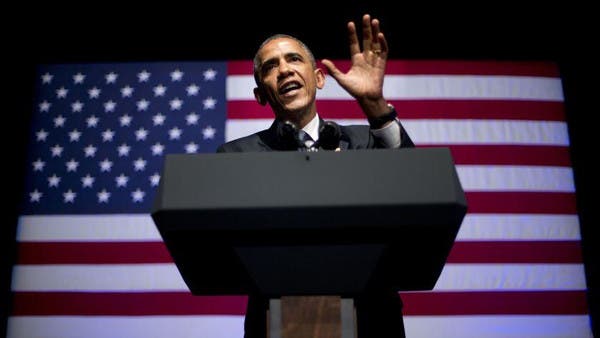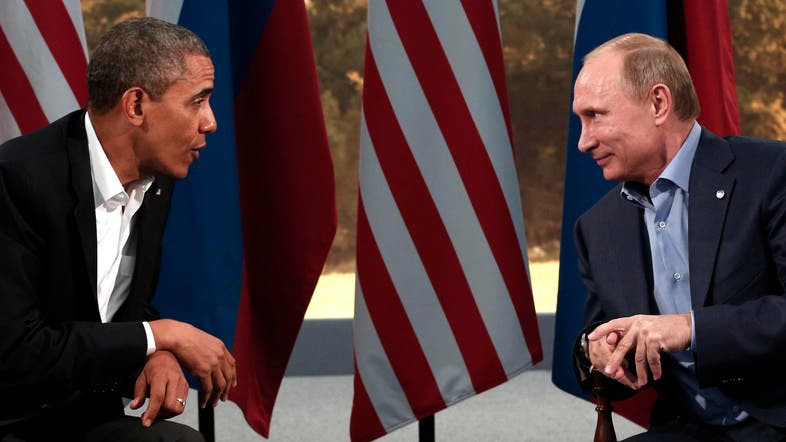
Paul
tried to scream when it happened, but couldn’t.
As the man on top of him rubbed his crotch on Paul’s back, he pinned his arms to the bed, and rendered him immobile. Breathing heavily in his ear, with the stench of cheap lager and cigarettes, the man told Paul to “relax”, and that he “only wanted to give him a special gift”.
Paul stops, and steps out to his balcony to regroup. He holds onto the rails, as he tries to control his shaking. He sheds tears into an old hankerchief, before coming back into the room. “I’m sorry, I’ve just shut [the memories] out for so long, it’s hard to remember everything”, he says.
As the man on top of him rubbed his crotch on Paul’s back, he pinned his arms to the bed, and rendered him immobile. Breathing heavily in his ear, with the stench of cheap lager and cigarettes, the man told Paul to “relax”, and that he “only wanted to give him a special gift”.
Paul stops, and steps out to his balcony to regroup. He holds onto the rails, as he tries to control his shaking. He sheds tears into an old hankerchief, before coming back into the room. “I’m sorry, I’ve just shut [the memories] out for so long, it’s hard to remember everything”, he says.
For the past few months, I’ve been meeting
Paul in his London flat to talk about the sexual abuse he experienced as a
teenager, and how a friend of his uncles’- a man he trusted, even admired,- eventually
became his rapist.
Cases
like Paul’s are more common than you’d think. According to official figures,
around 9,000 men and boys- 12 percent of survivors- are subject to rape or
sexual abuse each year, although in contrast, just over 1,000 cases are
actually reported. Most of the time, men who report their abuse do so years-
even decades- after the act was committed, with many survivors citing fear,
embarrassment and shame as the main reasons why they remain silent.
Paul, 24, was raised in Scotland. His
father died when he was still a child. While he still lived with his mother, he
spent most of his time with his uncle, who became a father figure for him. Paul’s
uncle lived close to his school, so he’d usually go there before
heading home. Sometimes, he even slept there. “He took
me to watch the Football, see movies, all the kinds of things a father would
do, I guess”.
“I liked going to my Uncles’ place, mainly because he’d treat me like one of the lads. He used to let me stay up late, eat junk- y’know, all the things my mum wouldn’t. And when I was about fourteen, fifteen, he’d let me have the odd can of beer or whatever he was drinking at the time. I’d even be allowed to hang out with his mates- join in on poker nights and all that” he says.
It was when his uncle invited friends over that Paul first met Max, the man who became his abuser.
According
to Paul, Max had first appeared to be a ‘friendly guy’ who was ‘easy to get on
with’. He was part of his uncles’ five-a-side team a regular drinking buddy and
at the time, considered ‘almost family’
by his Uncle.
“I remember times when Max would ask me to
help him take things from his car, and slide me over a bit of chocolate or
something- he’d often rub my back under my t-shirt a lot, or brush my leg every
so often. I didn’t really think anything of it at first- he seemed like that with
everyone” Paul says.
But as Max visited and even slept at his Uncles’ house more often, instances of forced intimacy became more frequent. Paul recalls a time when he was around 16, Max, who was looking after him while his Uncle was away, had asked him about girls, and why he had never had a girlfriend before.
But as Max visited and even slept at his Uncles’ house more often, instances of forced intimacy became more frequent. Paul recalls a time when he was around 16, Max, who was looking after him while his Uncle was away, had asked him about girls, and why he had never had a girlfriend before.
“He said that I wasn’t sexually
confident, and that I needed to know how to ‘treat a girl’ before I could get
one. I was a bit uncomfortable, but he said it was just guy talk that every man
should have”
“Then he took out some videos from my uncles’ drawer and put one in the VCR- I didn’t really know what it was about at first, but it turned out to be a porno- the first I had ever really watched. Max told me that I should watch it with him, because I needed to learn ‘how things worked’”.
“Then he took out some videos from my uncles’ drawer and put one in the VCR- I didn’t really know what it was about at first, but it turned out to be a porno- the first I had ever really watched. Max told me that I should watch it with him, because I needed to learn ‘how things worked’”.
“As I was watching it, he was
rubbing against me and undoing his trouser zipper. I just became uncomfortable
and got up- told him I was tired and wanted to sleep, but really I just didn’t
know what to do”.
But it was a few months later that Paul received the full extent of Max’s abuse. He had been sleeping when his uncle and Max had come home from a night of drinking. While his Uncle went out like a light, Max had entered Paul’s room, climbed on top of him, and aggressively began to remove his clothes. Despite all attempts to resist his advances Paul was crushed under Max’s bodyweight. He tells me, through teary that despite trying to fight back, to shout, he was unable to stop what happened next.
“It only lasted a few minutes I think. But it’s still the most terrifying.- It wasn’t just my body that was taken away by him, but also my self respect…for years I couldn’t even look at myself in the mirror, I was that ashamed” Paul hesitantly says.
Like many male survivors of sexual abuse, Paul didn’t tell anyone what happened that night, and spent years trying to forget what happened to him. He stopped visiting his uncles house, and avoided Max and his friends at all costs. But despite bottling up his emotions throughout school and college, he found himself becoming more introverted, less talkative, and gradually more erratic. In the absence of available help, he turned to drink and hard drugs to try escape from his problems, but, according to Paul “all they did was make things worse”.
But it was a few months later that Paul received the full extent of Max’s abuse. He had been sleeping when his uncle and Max had come home from a night of drinking. While his Uncle went out like a light, Max had entered Paul’s room, climbed on top of him, and aggressively began to remove his clothes. Despite all attempts to resist his advances Paul was crushed under Max’s bodyweight. He tells me, through teary that despite trying to fight back, to shout, he was unable to stop what happened next.
“It only lasted a few minutes I think. But it’s still the most terrifying.- It wasn’t just my body that was taken away by him, but also my self respect…for years I couldn’t even look at myself in the mirror, I was that ashamed” Paul hesitantly says.
Like many male survivors of sexual abuse, Paul didn’t tell anyone what happened that night, and spent years trying to forget what happened to him. He stopped visiting his uncles house, and avoided Max and his friends at all costs. But despite bottling up his emotions throughout school and college, he found himself becoming more introverted, less talkative, and gradually more erratic. In the absence of available help, he turned to drink and hard drugs to try escape from his problems, but, according to Paul “all they did was make things worse”.
“It was only when I lashed out at my
now ex-girlfriend, that I realized I couldn’t live like this any more- that was
when I got out of Scotland, and told myself I’d get through this.”

Paul is
now receiving help from a private therapist, who he started to see a few weeks
before we first met. It took him nearly ten years to come to terms with what
happened to him, and he tells me that for a long time he was in denial.
“I didn’t know what to say- I mean, I knew
about rape, but I didn’t actually think men could be raped. I didn’t think that
men wanted to rape other men” he says. “I
realise why so many women and men don’t want to talk about it- it’s not just
the physical abuse, but the lasting mental torture….it’s soul destroying”.
His experience is not unlike other male victims of sexual abuse. According to Duncan Craig, psychotherapist and founder of Survivors Manchester, around 80 percent of male sexual abuse survivors report the incident years after it happened-mostly in their childhood, while a large number seeking help more than 20 years after the incident took place.
“As a male, there is a myth that you should be able to protect yourself” Craig tells me. He adds that while the psychological impacts of rape and sexual abuse vary, in most cases such abuse has a huge impact on male survivor’s sense of masculinity, and that they are often afraid to speak out as it makes them feel “less of a man”. Duncan- himself having experienced sexual abuse at a young age- says that more activism and an “inclusive” language accounting for male sexual violation is needed to help men speak out; “As a society, [we are] not very good in making the space needed for men to talk” he adds.
Although cases of male rape have long been known, it was only fairly recently that the British government have made efforts to help victims of abuse. Last year, the government pledged half a million pounds to organisations helping survivors- including those of historic child abuse, and promised that they would receive “unprecedented access to vital help”. Despite this, a number of social workers and academic researchers told me that despite the increase in funding, little had been done to effectively tackle institutional failures that allow rape victims to be ignored.
His experience is not unlike other male victims of sexual abuse. According to Duncan Craig, psychotherapist and founder of Survivors Manchester, around 80 percent of male sexual abuse survivors report the incident years after it happened-mostly in their childhood, while a large number seeking help more than 20 years after the incident took place.
“As a male, there is a myth that you should be able to protect yourself” Craig tells me. He adds that while the psychological impacts of rape and sexual abuse vary, in most cases such abuse has a huge impact on male survivor’s sense of masculinity, and that they are often afraid to speak out as it makes them feel “less of a man”. Duncan- himself having experienced sexual abuse at a young age- says that more activism and an “inclusive” language accounting for male sexual violation is needed to help men speak out; “As a society, [we are] not very good in making the space needed for men to talk” he adds.
Although cases of male rape have long been known, it was only fairly recently that the British government have made efforts to help victims of abuse. Last year, the government pledged half a million pounds to organisations helping survivors- including those of historic child abuse, and promised that they would receive “unprecedented access to vital help”. Despite this, a number of social workers and academic researchers told me that despite the increase in funding, little had been done to effectively tackle institutional failures that allow rape victims to be ignored.
Ali
Javaid, a phD candidate at the University of York and an author of several
papers about male sexual abuse, told me that despite greater awareness of the
issues, many police forces in the UK didn’t have the training needed to deal
with the emotional issues underlining male sexual violence, and that a “highly militarised police
culture produces and reinforces a ‘gendered style’ of police work that
perpetuates, arguably, masculine practice and values”.
Ali also told me that a broader understanding of rape and sexual violence was needed in order to help victims of rape. According to his research, the general understanding of rape was one in which “females were [predominantly] viewed as victims; males, [predominantly] as offenders. Such perceptions fostered a mentality that “male rape was not considered ‘real rape’, resulting in male victims becoming “aberrant, relegated, and marginalised within specialist archive of news”.
Ali also told me that a broader understanding of rape and sexual violence was needed in order to help victims of rape. According to his research, the general understanding of rape was one in which “females were [predominantly] viewed as victims; males, [predominantly] as offenders. Such perceptions fostered a mentality that “male rape was not considered ‘real rape’, resulting in male victims becoming “aberrant, relegated, and marginalised within specialist archive of news”.
“It is important to remember that
male rape is not
motivated by sexual gratification but, like female rape, by dominance, power
and the enhancement of masculinity…. In societies still structured around male
supremacy, the most predominant hegemonic masculine stereotype continues to
support the notion that ‘real men’ control and dominate. Rape is one way of
achieving this domination and control”.
“Things are better, now” Paul told me during our final meeting.
Though he has yet to tell his mother and his
uncle about everything that happened to him, a event that he still “dreads to
think about”, he says support from his
therapy group, and more importantly, the “unconditional love” given to him by
his now long-term girlfriend, has made him view his abuse in a different light.
As I ask
him how he feels about what happened to him, he sits up tall, and for the first
time, smiles.
“I
used to think I was weak…pathetic, because of what happened. That somehow, I
deserved it. But now I’ve realized that I can’t think like that….I won’t let
myself think like that.”






